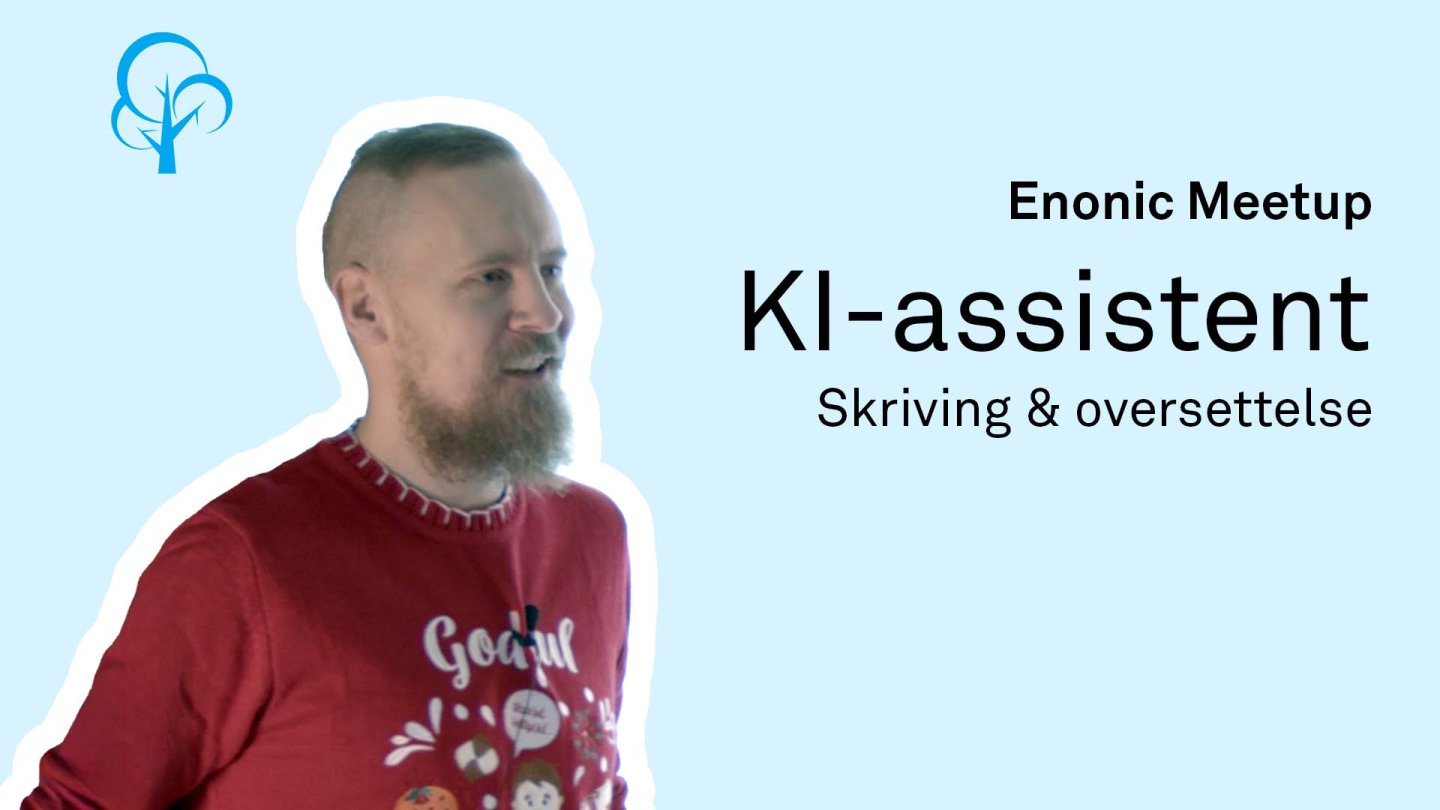Watch How Our New AI Writes and Translates Content
Enonic launches Juke, an AI colleague which makes content management in Content Studio more efficient.

Enonic launches Juke, an AI colleague which makes content management in Content Studio more efficient.
From the beginning Enonic has embraced artificial intelligence (AI) and explored how the technology can create value for both customers and the company itself. AI has many use cases, including text generation—a feature already available in tools like Google Docs and HubSpot.
However, instead of limiting ourselves to smaller features, Enonic has developed a larger, more long-term concept: an AI-powered colleague called "Juke," designed to be an active and integrated part of Content Studio.
See our demonstration of Juke here! (in Norwegian)

Juke is designed as a virtual team member in Content Studio. He will be visible in the editor just like any other colleague who is online. His tasks include text generation, translation, SEO optimization, and data structuring.

Juke operates as an app that can be installed and configured like any other app. To bring Juke up to speed, users can provide him with context such as the company’s digital strategy, activity plans, and specific guidelines like tone of voice.
This enables Juke to adapt to the company’s unique needs and content style.
Juke will initially focus on text generation and translation, both of which will launch in January 2025. Examples of other planned features include:
A concept sketch of the mass update functionality from a recent Meetup demonstrated how Juke can handle tasks like removing references to an employee who has left the company.
By scanning content and presenting users with alternatives, Juke streamlines such tasks, allowing content editors to focus on more creative and strategic assignments.
See also: The EU AI Act – What It Means for Your Digital Offerings »
In the editor, Juke can generate text based on specific commands, such as writing a blog post about content trends. He identifies relevant fields like headings, introductions, and body text and fills them in automatically.
Users can also adjust the text—for example, by making an introduction shorter—and all changes are updated immediately.
Juke can also handle translations. Users can define translation instructions, such as using shorter sentences and avoiding compound words.
For instance, when translating a text into Norwegian, users can ask Juke to suggest alternatives to long words or complex phrases.
Juke is powered by Google Vertex AI, which combines multiple AI models and techniques. All data processed through Juke is controlled by Enonic, and the information sent to Google is stateless—nothing is stored or used for further training of the models.
This ensures that customer data remains private and GDPR-compliant. The system is also designed to prevent users from unintentionally exposing sensitive information.
Juke will be available to all editors in the latest version of Content Studio starting in January 2025, but functionality can be tailored for individual projects. For example, specific rules and content profiles can be configured based on target audiences or project types.
User feedback will be critical for further development, and new features and "skills" will be launched continuously.
Initially, the features will be available at no additional cost. Over time, there may be additional costs for more advanced features, but this will depend on usage and platform development.
Juke represents a step toward more automated and efficient content management, where AI takes care of repetitive tasks, allowing editors to focus on creative and strategic work.
Moving forward, Enonic will continue to develop and expand Juke’s functionality based on feedback and emerging market needs.
Get some more insights 🤓